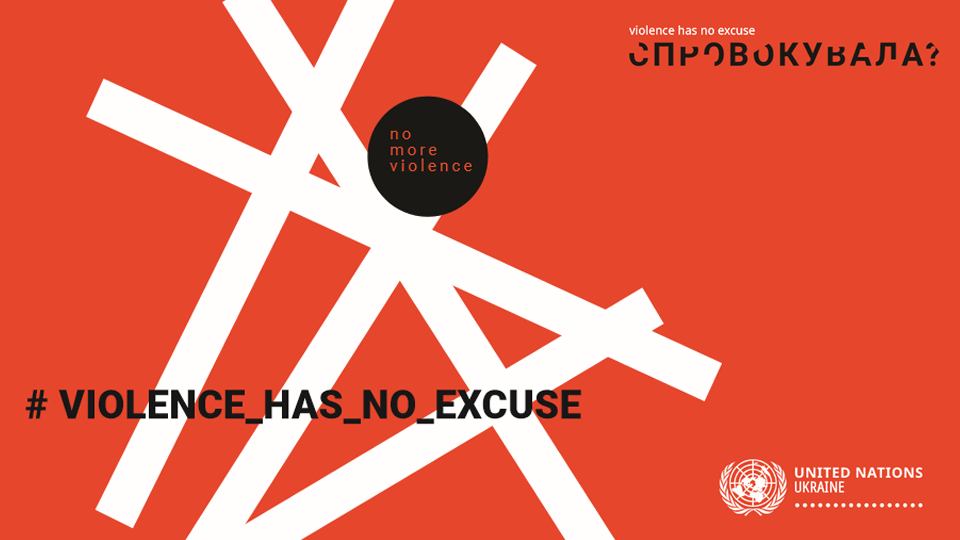Digital campaign challenges Ukrainians to rethink gender based violence during a pandemic
Date:

“Did she provoke?” That is the question Ukrainians were asked as part of a clever new digital campaign designed to challenge what they think gender-based violence is and what causes it. The campaign was devised in response to a recent perception survey, which revealed that prevailing social attitudes provides fertile ground for gender-based violence to persist in the country.
Conducted by UN Women, the Survey on Perceptions of Gender-Based Violence assessed how the public saw gender-based norms and stereotypes, also awareness of gender-sensitive legislation, and the role of education and the media in transforming public attitudes and behaviours. Undertaken in 2019 across three conflict-affected eastern regions of the country (Zaporizhzhia, Donetsk and Luhansk) the survey made several key findings. These included a prevailing belief that women who suffer violence bring it upon themselves, with 16 per cent believing that female rape victims did something that led to their attack. Meanwhile 29 per cent agreed that a woman provokes violence if she wears revealing clothes, and 35 per cent believe that unwanted touching, stroking and other actions of sexual nature from an unknown person is not a sexual violence. These attitudes, coupled with various gender stereotypes about women’s agency, capacity and role in society, ultimately shape the culture of tolerating and excusing violence against women and girls.
Asking the question “Did she provoke?”, the campaign depicted situations of violence against women such as domestic violence, sexual harassment in public places, stalking and bullying to challenge victim-blaming and to advocate for zero tolerance to violence. The campaign reached more than 1.5 million people on YouTube and sparked a wide discussion about what really causes gender-based violence.
The campaign was run by UN Women under the United Nations Recovery and Peacebuilding Programme (UNRPP). This programme is implemented by the United Nations Development Programme (UNDP), the UN Entity for Gender Equality and the Empowerment of Women (UN Women), the United Nations Population Fund (UNFPA) and the Food and Agriculture Organization of the United Nations (FAO).
The campaign came at an important time as COVID-19 lockdowns have seen a dramatic rise in domestic violence incidents. Data from national hotlines demonstrate this increase. In April 2020, the national hotline on gender-based violence response, operated by La Strada and supported by the United Nations Population Fund (UNPFA), received 2,048 calls, a 56 per cent increase compared to March 2020. Meanwhile, 97 per cent of cases of violence addressed by UNFPA-supported services are attributed to domestic violence. According to the Ministry of Social Policy of Ukraine, since March 2020, in nearly a month of lockdown, mobile teams conducted more than 2,400 telephone and online consultations, more than half of which related to gender-based and domestic violence.
Gender-based violence against women and girls is a grave violation of human rights, deeply rooted in gender inequality, discrimination and harmful cultural and social norms. Further exacerbated by the COVID-19 pandemic, its impacts range from immediate to long-term multiple physical, sexual and mental consequences for women and girls, including death. It negatively affects women’s general well-being and prevents women from fully participating in society. Violence not only has negative consequences for women but also their families, the community and the country at large. It has tremendous costs, from greater health care and legal expenses and losses in productivity, impacting on national budgets and overall development.
UNRPP is supported by thirteen international partners. These are: the European Union, the European Investment Bank, the United States Embassy in Ukraine, and the governments of Canada, Denmark, Germany, Japan, the Netherlands, Norway, Poland, Sweden, Switzerland and the United Kingdom.